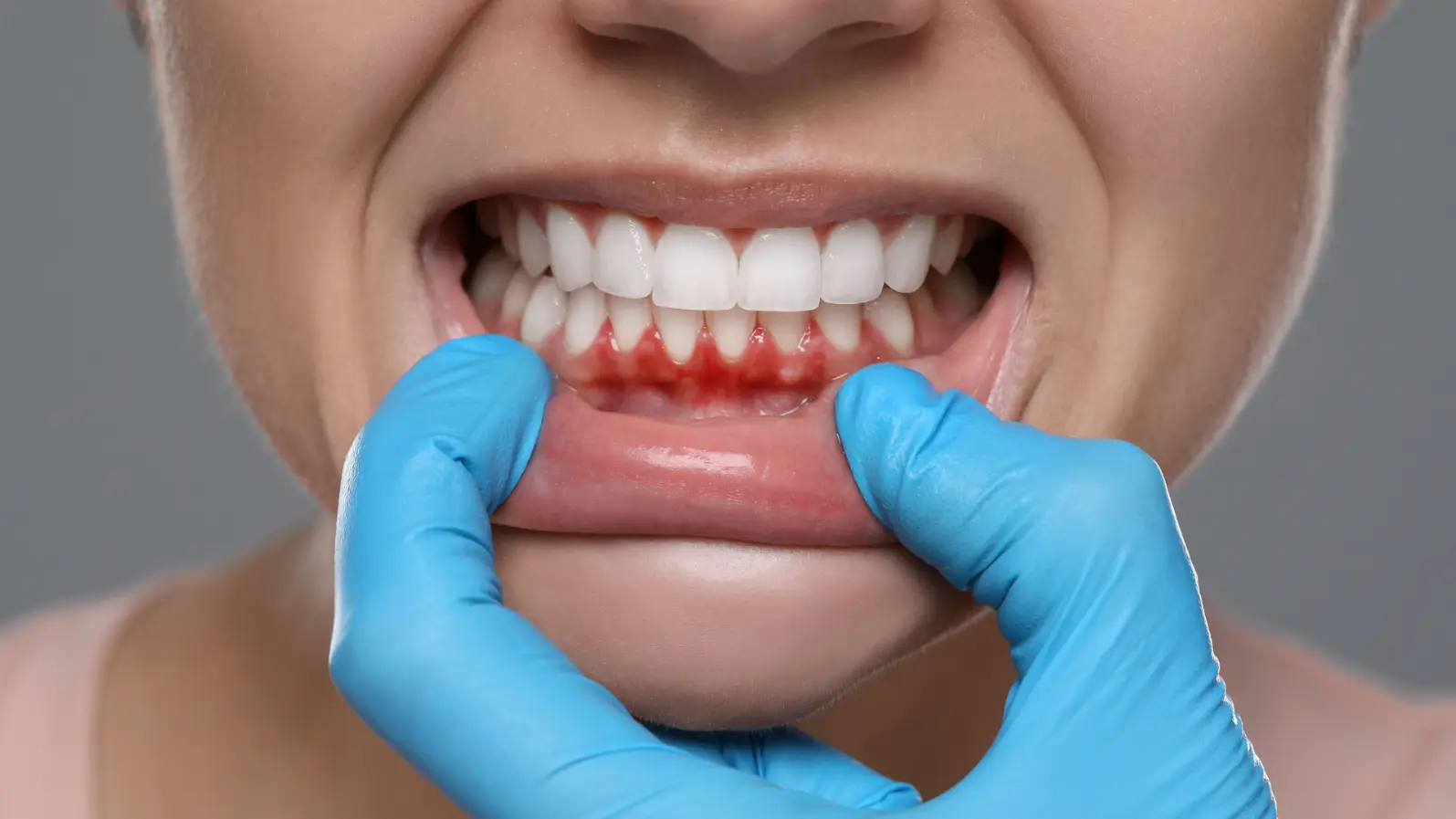
When Gum Health Meets Brain Health: How Periodontal Disease May Be Linked to Hidden Brain Damage
A New Look at Oral Health and the Brain
For years, dentists and doctors have warned that gum disease isn’t just about losing teeth—it’s also connected to heart problems and diabetes. Now, researchers are finding another surprising link: the health of your gums may be tied to the health of your brain’s small blood vessels.
A new study published in Neurology Open Access by Jaclyn Meyer and colleagues (2025) suggests that periodontal disease (PD)—a chronic inflammation of the tissues supporting the teeth—may independently contribute to white matter hyperintensities (WMHs), tiny areas of brain damage often seen in aging and linked to stroke and cognitive decline.
Understanding the Connection: What Are WMHs and PD?
White matter hyperintensities (WMHs) appear as bright spots on brain MRI scans. They signal small vessel damage in the brain and are considered early markers of cerebral small vessel disease (CSVD)—a condition that raises the risk for stroke, dementia, and mobility problems.
Meanwhile, periodontal disease affects nearly half of U.S. adults. It occurs when bacteria and chronic inflammation gradually destroy the gums, bone, and ligaments that hold teeth in place. This ongoing inflammation can spread beyond the mouth, releasing inflammatory molecules into the bloodstream and potentially affecting distant organs—including the brain.
Inside the Study: Tracking the Mouth-Brain Link
The research team analyzed data from 1,143 older adults who participated in the long-running Atherosclerosis Risk in Communities (ARIC) study, a major U.S. project investigating cardiovascular and brain health.
Participants had their gum health assessed during one study visit and underwent MRI brain scans about 15 years later. The researchers compared people with periodontal disease (n = 800) and those with healthy gums (n = 343), focusing on several brain changes:
White matter hyperintensity volume (WMHV)
Cerebral microbleeds (CMBs)
Lacunar infarcts (small, deep brain strokes)
They also adjusted their analyses for other factors that could influence brain health—such as age, sex, race, smoking, diabetes, and hypertension.
What They Found
The results were striking. Participants with gum disease had significantly greater white matter damage compared with those with healthy gums.
The median WMH percentage was 2.83% in the gum disease group versus 2.52% in the healthy group.
People with gum disease were 56% more likely to fall into the highest category of brain damage (top 25% of WMH volume).
This association remained even after controlling for other vascular risk factors.
However, gum disease was not independently linked to other small-vessel findings like cerebral microbleeds or lacunar infarcts after statistical adjustments. This suggests that the strongest connection lies between gum inflammation and diffuse white matter damage rather than visible microbleeds or small strokes.
Why It Matters: Inflammation as the Common Thread
The findings add to growing evidence that chronic inflammation—even from something as local as gum disease—can have wide-reaching effects on the body. Inflammation may damage blood vessel walls, promote plaque buildup, and reduce oxygen delivery to the brain’s small vessels, eventually contributing to cognitive decline or stroke risk.
“Oral health might be more important for brain aging than we thought,” the authors suggest. If confirmed, treating and preventing gum disease could become a new target for protecting brain health—alongside managing blood pressure, diabetes, and cholesterol.
Limitations and Future Steps
The researchers note that the dental and MRI exams were conducted years apart, so it’s not possible to prove cause and effect. Also, some participants with severe gum disease may have died before the MRI follow-up, possibly underestimating the true impact.
Still, the study provides compelling evidence that oral health and brain health are interconnected—and that keeping your gums healthy may be one more way to protect your mind as you age.
Takeaway
This research reinforces a simple but powerful idea:
🪥 Brushing and flossing regularly may do more than save your smile—it might also help preserve your brain.
Reference:
Meyer, J., Martin, C., Wood, S., Lowe, F., Bonilha, L., Adam, H.S., Demmer, R., Wasserman, B.A., Rosamond, W.D., Beck, J.D., & Sen, S. (2025). Periodontal Disease Independently Associated With White Matter Hyperintensity Volume: A Measure of Cerebral Small Vessel Disease. Neurology Open Access, 1:e000037.
DOI: 10.1212/WN9.0000000000000037